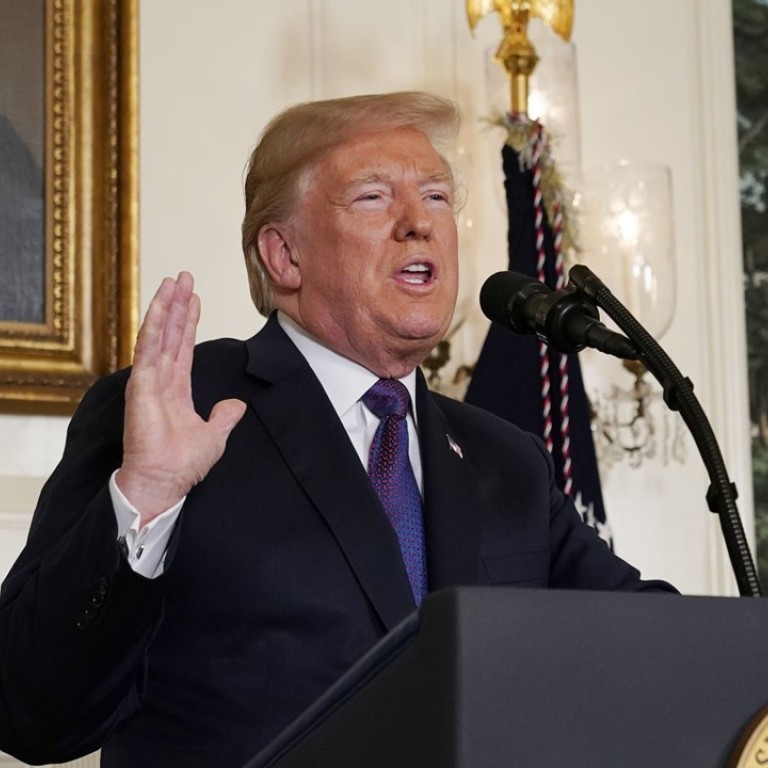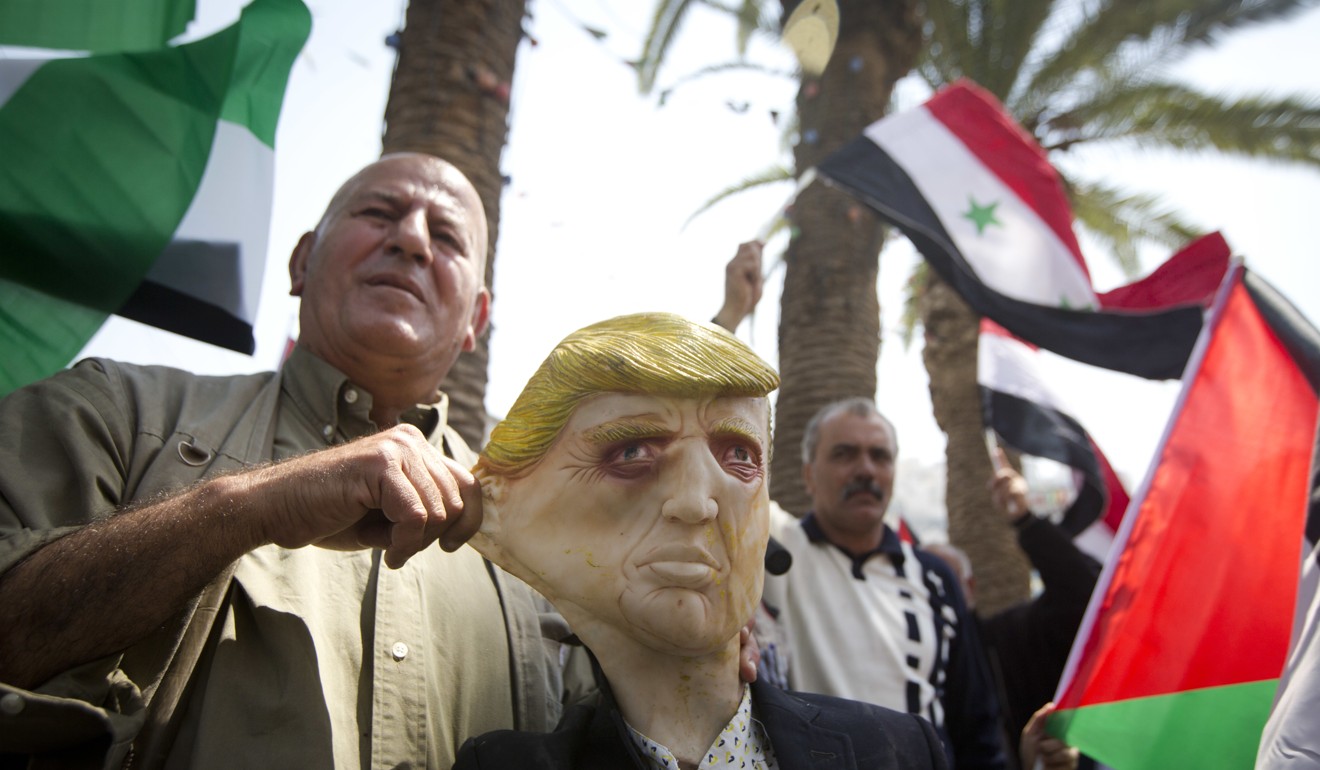
‘Mission accomplished!’ Trump praises missile strikes on Syria as Pentagon assures it ‘hit every target’
Meanwhile, global watchdog said it will be inspecting the site of the alleged chemical weapons attack that triggered the Western coalition’s response
President Donald Trump on Saturday praised the predawn strikes against Syria’s regime carried out jointly by the US, Britain and France, saying they “could not have had a better result”.
Western officials said a barrage of cruise and air-to-land missiles hit what they said were sites linked to chemical weapons development, in retaliation after a suspected toxic gas attack a week ago on the rebel-held town of Douma, in the Damascus suburbs.
“A perfectly executed strike last night. Thank you to France and the United Kingdom for their wisdom and the power of their fine Military,” Trump tweeted.
“Could not have had a better result. Mission Accomplished!”
Branding last week’s alleged chemical attack the “crimes of a monster,” Trump announced the military action against President Bashar al-Assad’s regime in a White House address late Friday, defying fierce warnings from Damascus ally Russia.
US Defence Secretary Jim Mattis called the strikes a “one-time shot” with no additional military action planned for now.
The Pentagon also said on Saturday morning that the joint US-British-French operation had “successfully hit every target”, countering assertions from Russia and Syria that dozens of missiles were intercepted.
“We do not seek conflict in Syria, but we cannot allow such grievous violations of international law,” Pentagon spokeswoman Dana White told reporters.
“We successfully hit every target,” she said. “The strikes were justified, legitimate and proportionate.”
Lieutenant General Kenneth McKenzie, also at the briefing, said three sites that are “fundamental components of the regime’s chemical weapons infrastructure” were struck.
The operation was “precise, overwhelming and effective,” he said, adding it will set their chemical weapons program back “for years”.
McKenzie said that none “of our aircraft or missiles involved in this operation were successfully engaged by Syrian air defences.”
Weapons inspectors will try on Saturday to reach the site of the suspected chemical attack in the Syrian town of Douma.
The OPCW’s fact-finding mission “will continue its deployment to the Syrian Arab Republic to establish facts around the allegations of chemical weapons use in Douma”, the agency said in a statement.
Damascus and its ally Russia have denounced the Western action, in particular for refusing to wait until the results of the fact-finding mission sent by the OPCW in the wake of the April 7 incident.
Rescuers said scores of people died in that incident. Washington says it has confirmed that chlorine gas was used, and has unconfirmed suspicion that nerve agents may also have been used. Damascus and Moscow deny blame for any such attack.

Security permitting, a team from the Organisation for the Prohibition of Chemical Weapons will deploy briefly on Saturday to the site.
The team will work with the United Nations Department of Safety and Security ensure the safety of the team, it said.
Syria agreed to give up its chemical weapons arsenal in 2013 and submit to OPCW inspections. It is meant to have destroyed all of its stockpiles of nerve agents. In the case of chlorine, it is permitted to possess it for civilian use, but not to use it as a weapon.
The OPCW will determine whether chemical weapons were used, but will not assign blame.
Despite a US-Russian agreement to completely eliminate Syria’s chemical weapons programme after hundreds of people were gassed with sarin in Ghouta on August 21, 2013, the OPCW had been unable to verify that all manufacturing, storage and research facilities were destroyed.
Among the sites reportedly hit overnight Friday was the Scientific Studies and Research Centre, a facility that has played a key role in Syria’s chemical weapons programme since the 1970s.
OPCW inspectors have raised questions about the SSRC since 2013, when Damascus joined the 1997 Chemical Weapons Convention and agreed to do away with its stockpile to avert threatened strikes under President Barack Obama.
Syria has been unable to explain several findings by inspectors, including undeclared research and development sites, the presence of banned chemicals and missing munitions, sources have told Reuters.
Reuters and Agence France-Presse
